This Is What Handwriting Analysis Reveals About You
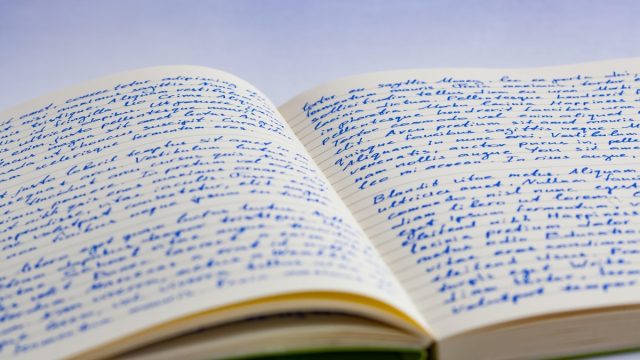
Your writing can say a lot about you, but it’s not just the words you commit to paper—it’s also the way you write them. Annette Poizner, MSSW, author of Clinical Graphology: An Interpretive Manual for Mental Health Practitioners, describes graphology, or handwriting analysis, as the process of “seeing handwriting as a metaphor.” Working off of the principle that “people are so expressive that they express themselves in virtually everything they do,” graphologists can infer likely behavioral traits from someone’s handwriting, Poizner explains.
Of course, handwriting is only one form of expression, but Poizner affirms that the way someone puts pen to paper can often reveal significant parts of their personality that might otherwise be hard to see. So before you scribble something down again, make sure you know what your handwriting says about you.
Varied I’s: You have a weak sense of self.
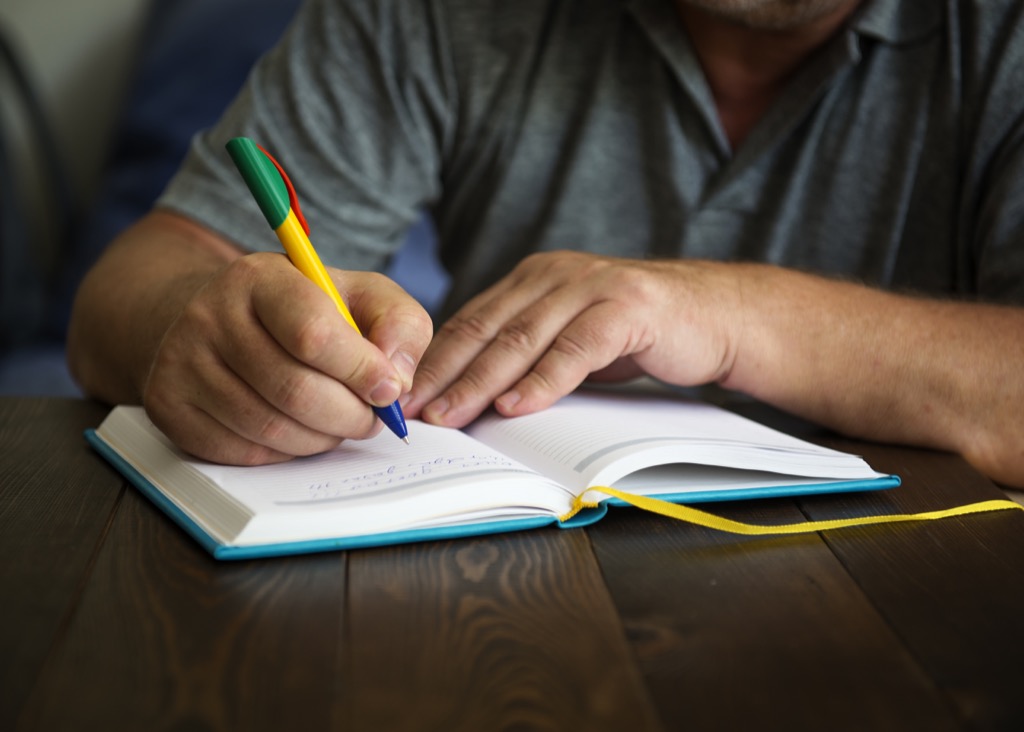
If someone uses many different forms of the letter I throughout their work—some block, some cursive, some just a straight line—that indicates that the writer “lacks a stable sense of self-identity,” says Poizner. On the other hand, if they know themselves, they’ll be projecting that stability onto the page.
Irregular style: You’re dealing with chaos.
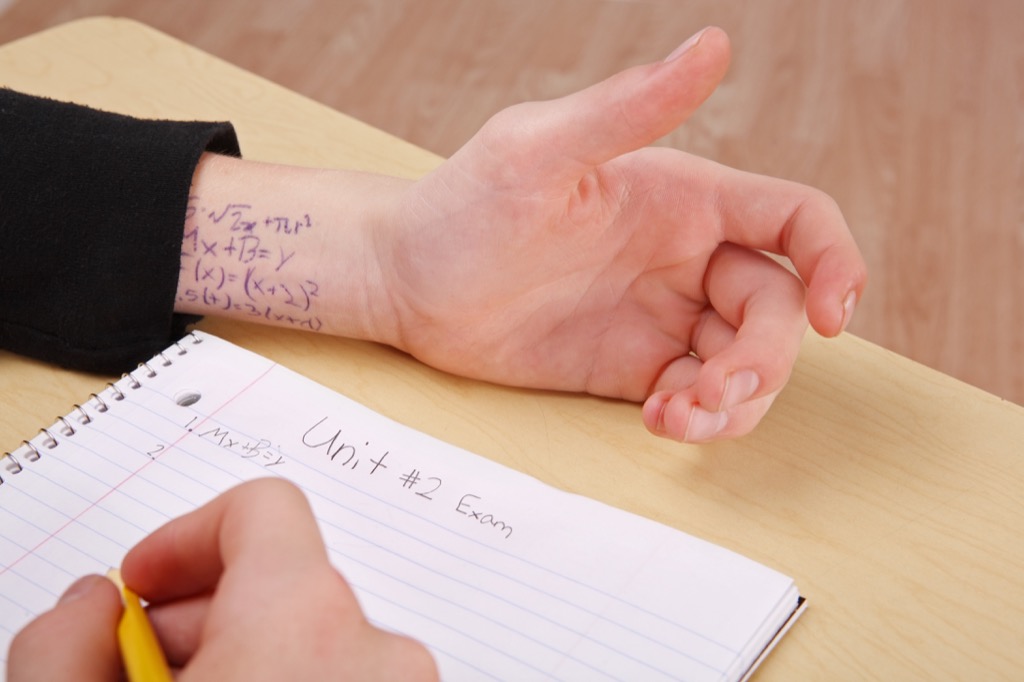
If someone’s writing style is irregular—mixing in different sizes, fonts, and tilts—that may indicate they have difficulties with “emotional modulation,” says Poizner. In addition, she explains, it may even point to difficulties maintaining a healthy blood sugar level or being productive at work.
Circles everywhere: You’re feeling defensive.

Big circles within words, says Poizner, point to a “defensive posture” and an orientation toward “self-protection.” Just like the smaller letters hiding with these circles, she explains, the writer “may be withholding secrets” or experiencing a “certain insecurity.”
Contracted words: You’re under pressure.

If someone’s writing appears contracted—as if it’s being squeezed from both sides like an accordion—Poizer says it likely indicates they are feeling “pressurized.” Whether it’s internal or external, she says, the pressure one feels inevitably ends up being placed on their words, resulting in what appears to be compressed handwriting.
Tiny letters: You’re introverted.

Tiny handwriting, according to Poizner, shows that the writer possesses “strong concentration skills.” Much like their hard-to-see words, however, they’re also often difficult to understand. These writers tend to be “introverted,” she says, and “rather private.”
Large words: You want attention.

Unsurprisingly, Poizner says that those who write the largest have a “desire to stand out.” The expansiveness of their writing, she explains, is yet another manifestation of their desire for expansiveness in the real world.
Severe angles: You’re feeling dominant.
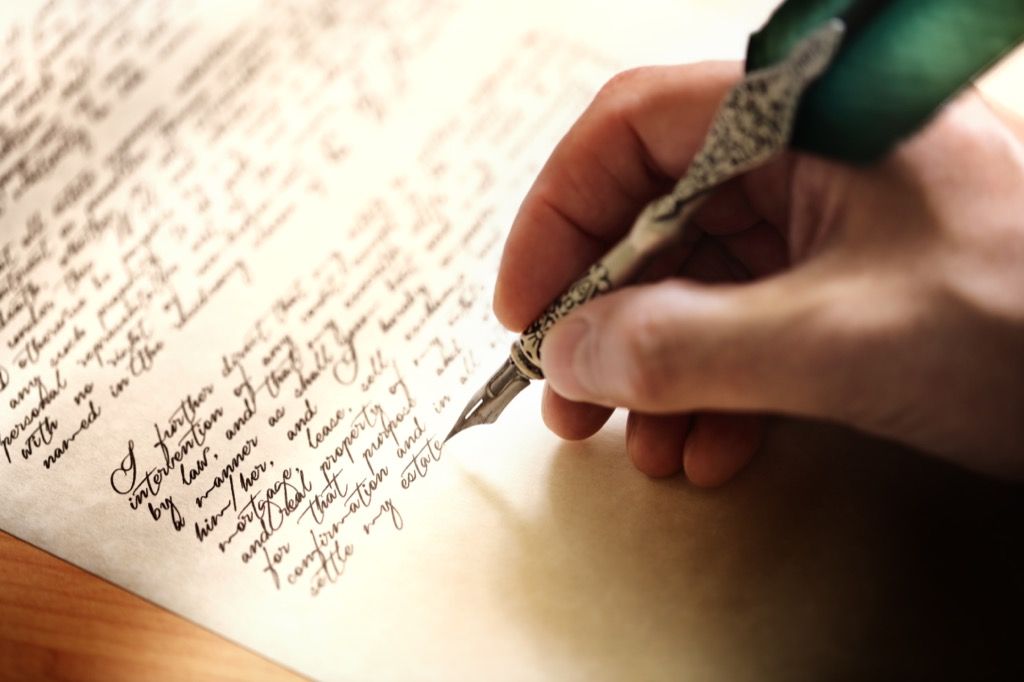
Highly angular writing—as if the words have been blown by a strong wind—indicates the writer has “strong analytical skills,” according to Poizner. It also indicates a more “controlling, dominant type of personality,” and a person who is often less socially-savvy than their peers.
All-caps: You have an independent streak.

If someone tends to write in all caps, says Poizner, that likely means they are “independent minded” and “defiant.” As an example, she points to the all-caps signature of Simpsons creator Matt Groening, whose rebellious personality has defined much of his work.
Light pressure: You’re feeling sensitive.

If someone places very light pressure on the page—leaving marks that seem more like pencil than pen—Poizner says that points to an “emotional sensitivity” or “emotional issues.” You can almost hear their pen saying, “Don’t push me!”
Rounded letters: You’re an open-hearted person.

According to Poizner, highly rounded letters show that the writer is more “expressive, emotional, and warm-hearted.” So maybe next time you go on a date, sneak a peek at their handwriting—you’ll get a good idea of their emotional intelligence.
Large spaces: You’re feeling distant.

Extra wide spaces between words, says Poizner—who defines “extra wide” as larger than one character width—indicate “somebody who is distant.” Just like their letters, she says, they may “have difficulty making contact.”
Small spaces: You crave close contact.

On the other hand, when a writer places their words very close together, causing a cramped appearance, Poizner says it indicates that they are craving “inappropriately close contact.” Just like they want their words to get to know each other a little too much—blurring the line between one word and the next—they might have boundary issues with other people.
Perfect style: You’re a conventional person.
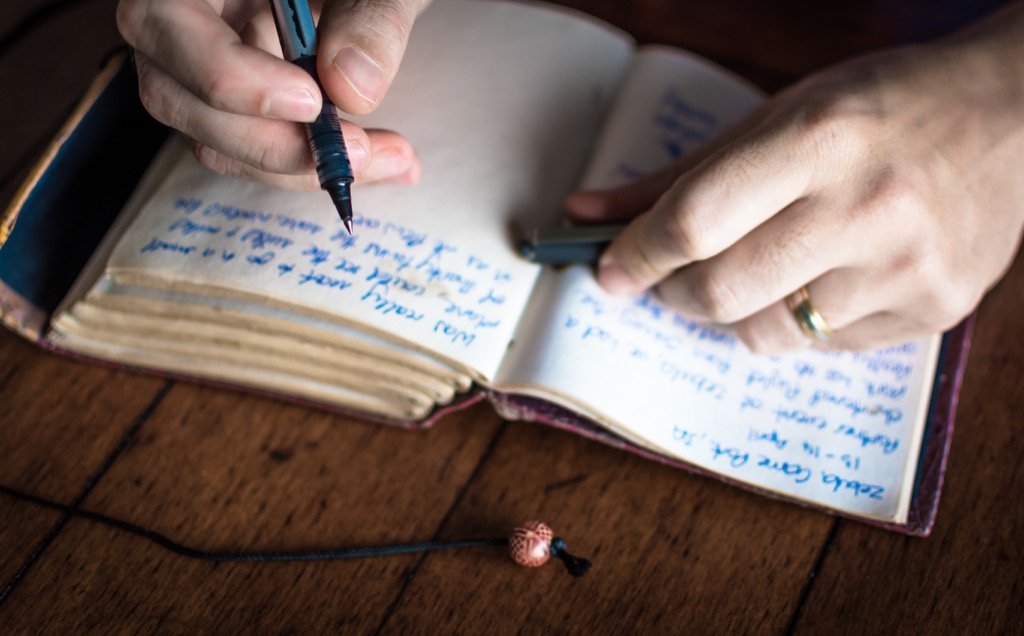
Having a perfect textbook writing style indicates that the author is “conforming” and “conventional,” says Poizner. This person has been following directions closely since they first learned to write.
Unique signature: You have very different public and private lives.

If a writer uses a signature that is radically different in style from the rest of their writing, this may indicate that the person has “a public image that contrasts with his or her self-perception,” according to Poizner. Just as their writing appears to come from two separate people, she says, they themselves may feel like they occupy two different selves.
Entwined names: You’re close with your family.

If a person’s first and last name tend to overlap in their signature, Poizner says this indicates a “close involvement” with whoever they got their surname from, whether that’s a parent or a spouse. In certain cases, she warns, it may even point to a “dependence” or an “over-involvement” with that person.
Carefully crossed T’s and dotted I’s: You’re a highly detailed person.

No surprise here: The expression “cross their T’s and dot their I’s,” which means someone is meticulous and detail-oriented, is an accurate one. These people also tend to be conscientious, says Poizner, refusing to leave behind even the smallest of markings.